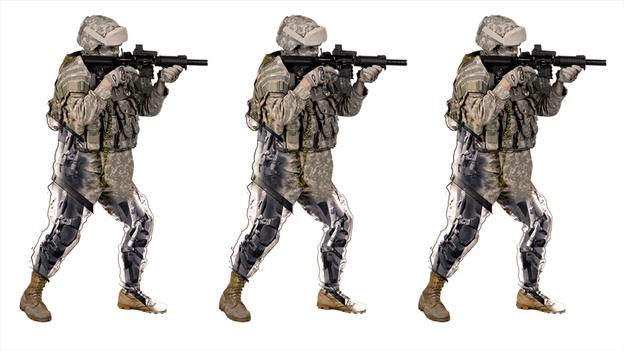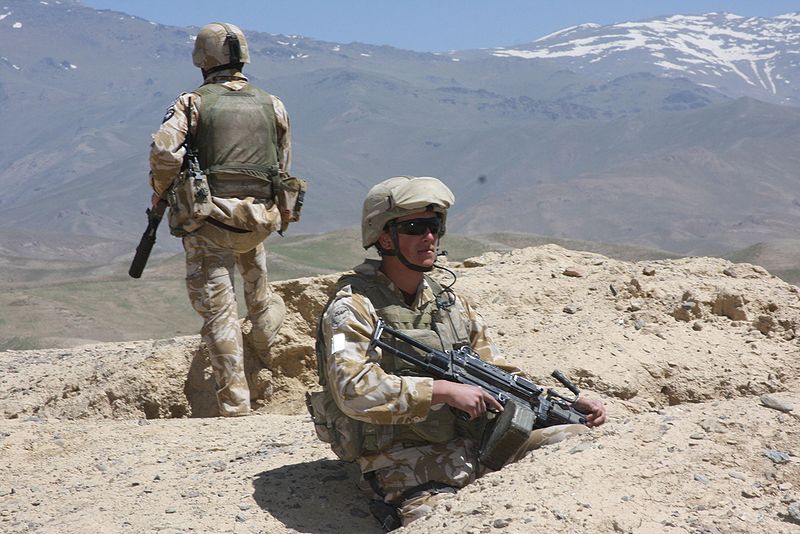A Soldier carries a 61-pound load while walking in a prototype DARPA Warrior Web system during an independent evaluation by the U.S. Army. Warrior Web seeks to create a soft, lightweight under-suit that would help reduce injuries and fatigue common for Soldiers, who often carry 100-pound loads for extended periods over rough terrain.
DARPA envisions Warrior Web augmenting the work of Soldiers’ own muscles to significantly boost endurance, carrying capacity and overall warfighter effectiveness-all while using no more than 100W of power.
The U.S. Army Research Laboratory Human Research and Engineering Directorate (ARL HRED) is nearing completion of a five-month series of tests to evaluate multiple Warrior Web prototype devices.
The testing evaluates how each prototype incorporates different technologies and approaches to reduce forces on the body, decrease fatigue, stabilize joints and help Soldiers to maintain a natural gait under a heavy load.
The testing uses a multi-camera motion-capture system to determine any changes in gait or balance, a cardio-pulmonary exercise testing device to measure oxygen consumption and a variety of sensors to collect force, acceleration and muscle activity data.
The Warrior Web program consists of two related program tasks. Currently underway, Task A seeks to develop a mix of core technologies deemed critical for the program’s success.
Scheduled to commence in fall 2013, Task B aims to develop and fabricate an integrated suit that would eventually undergo real-world testing to evaluate its performance.











